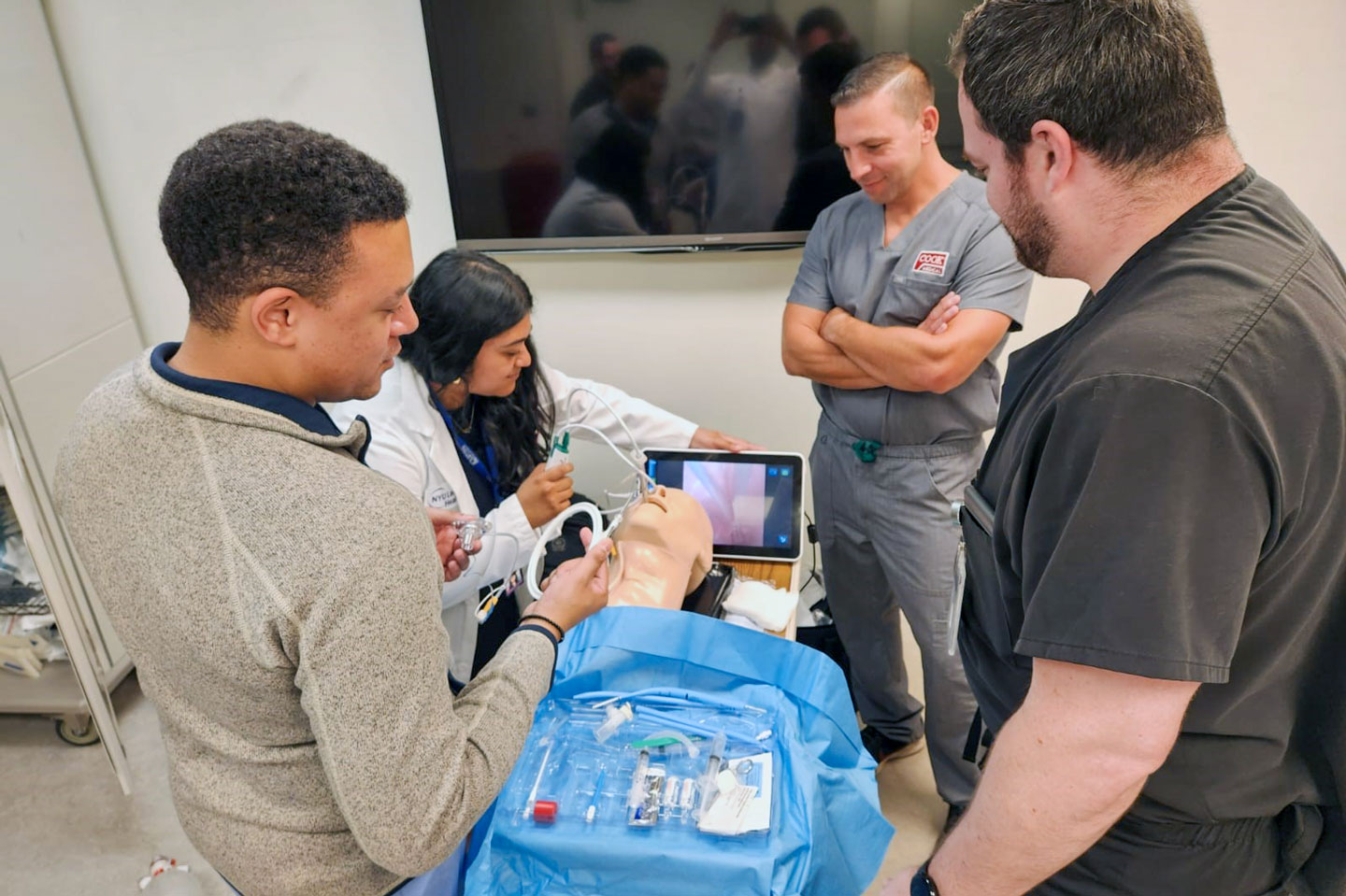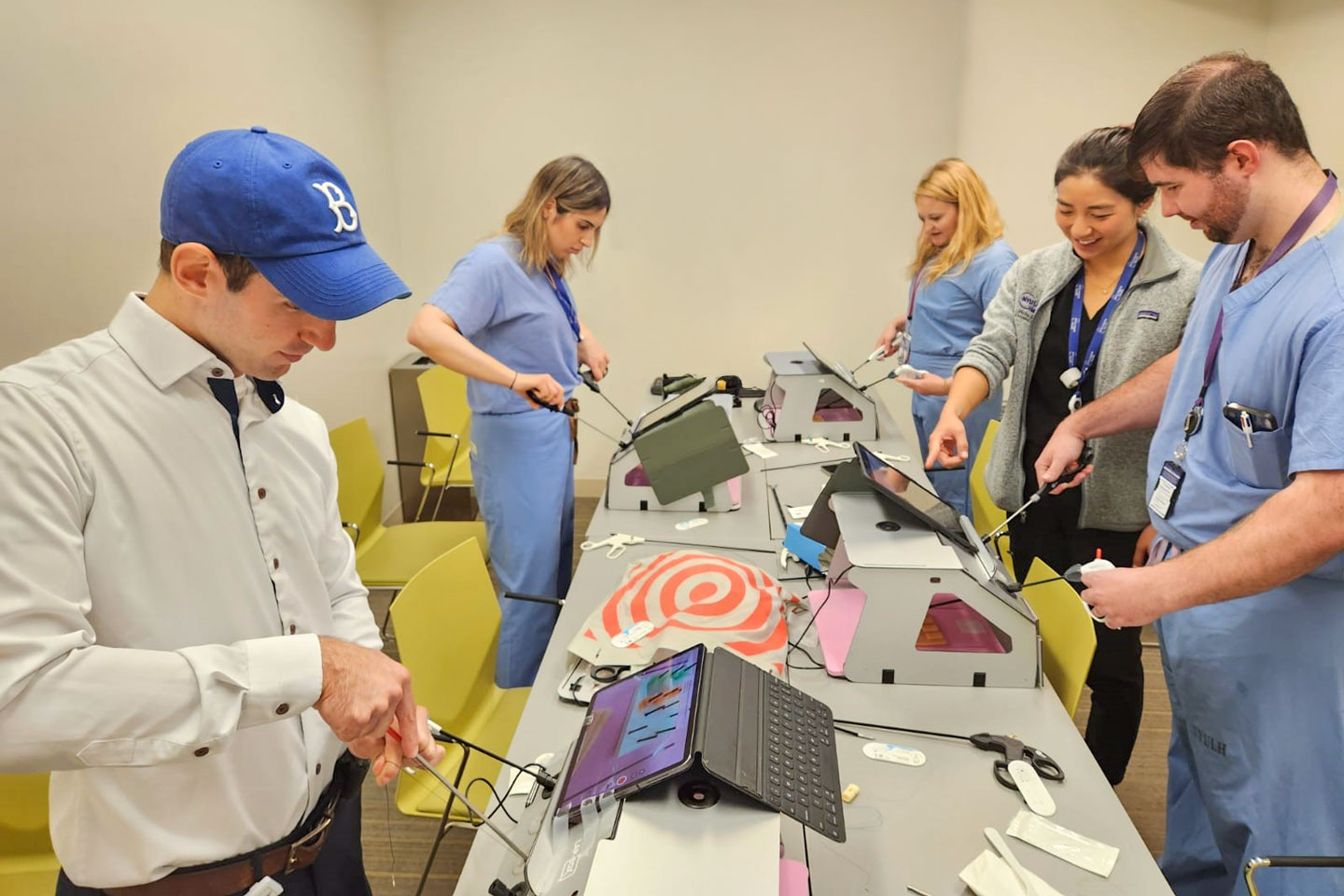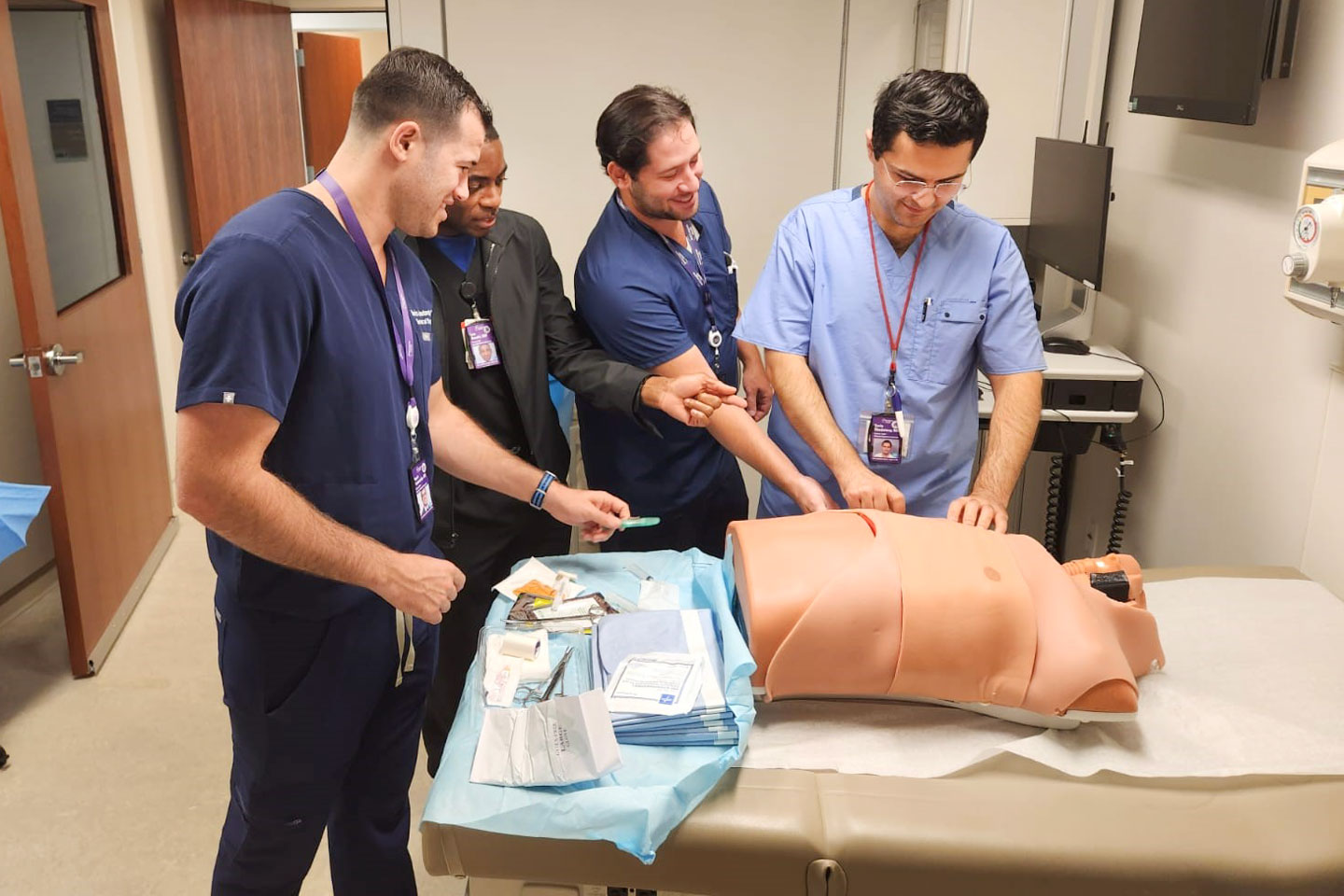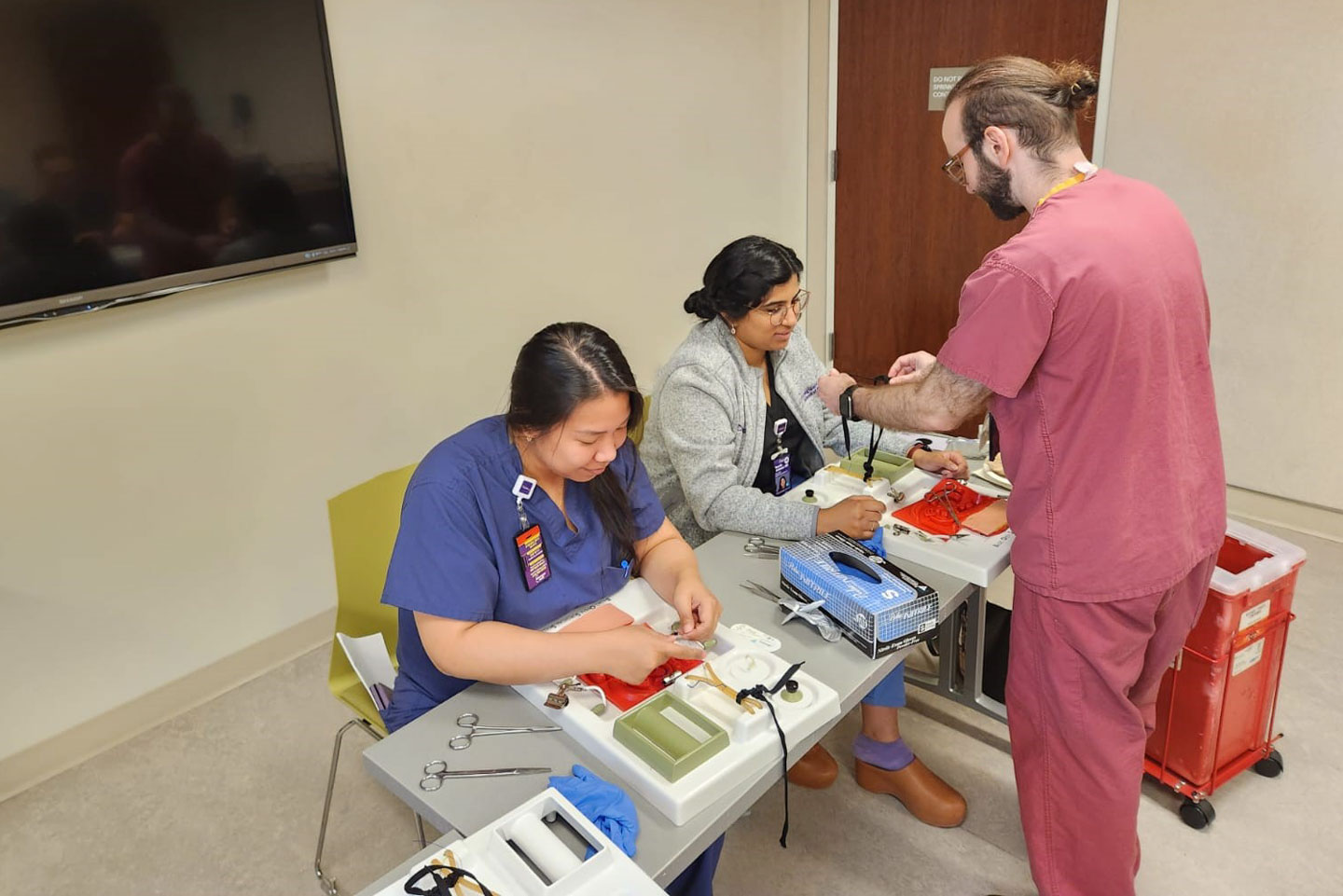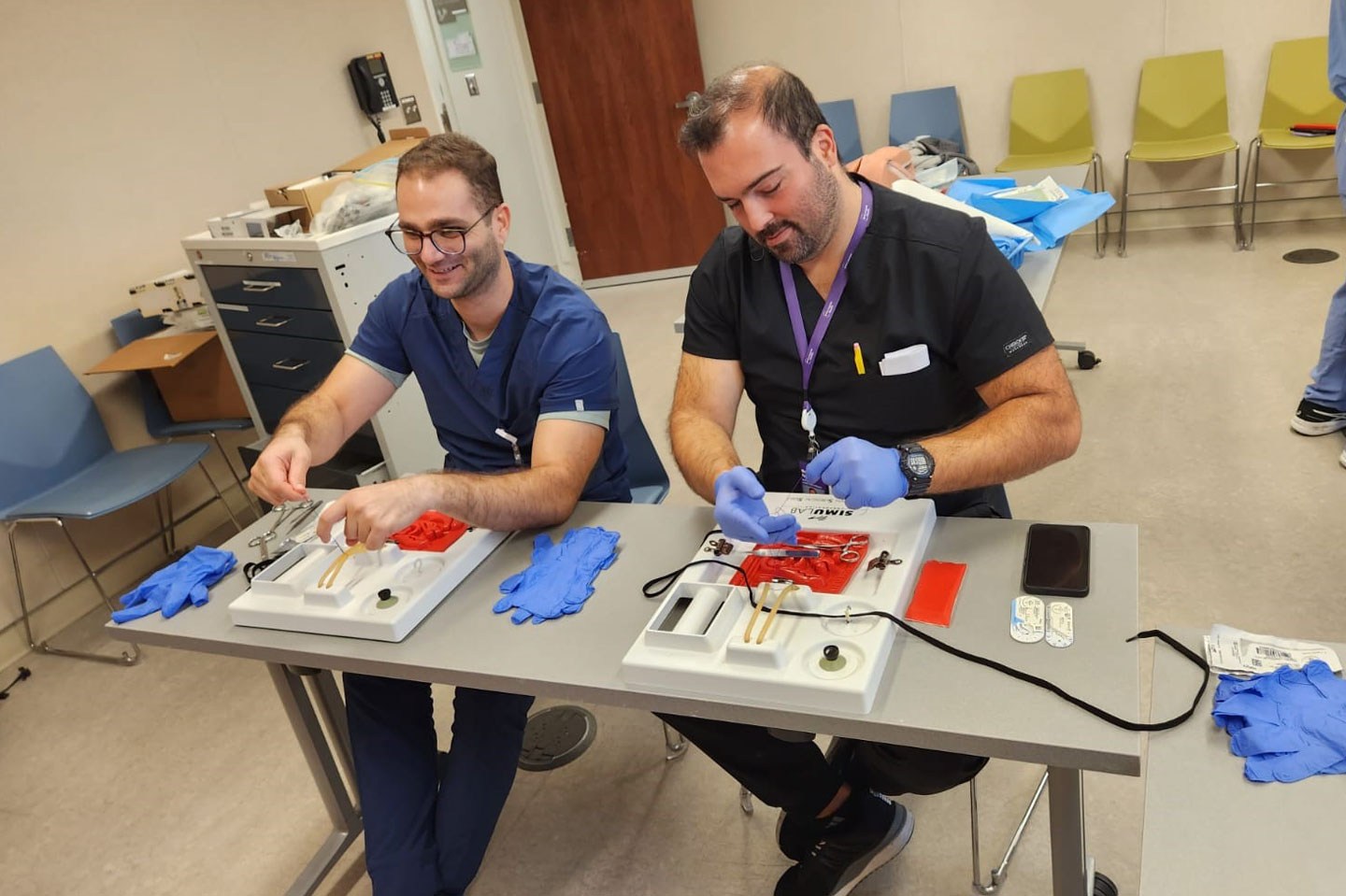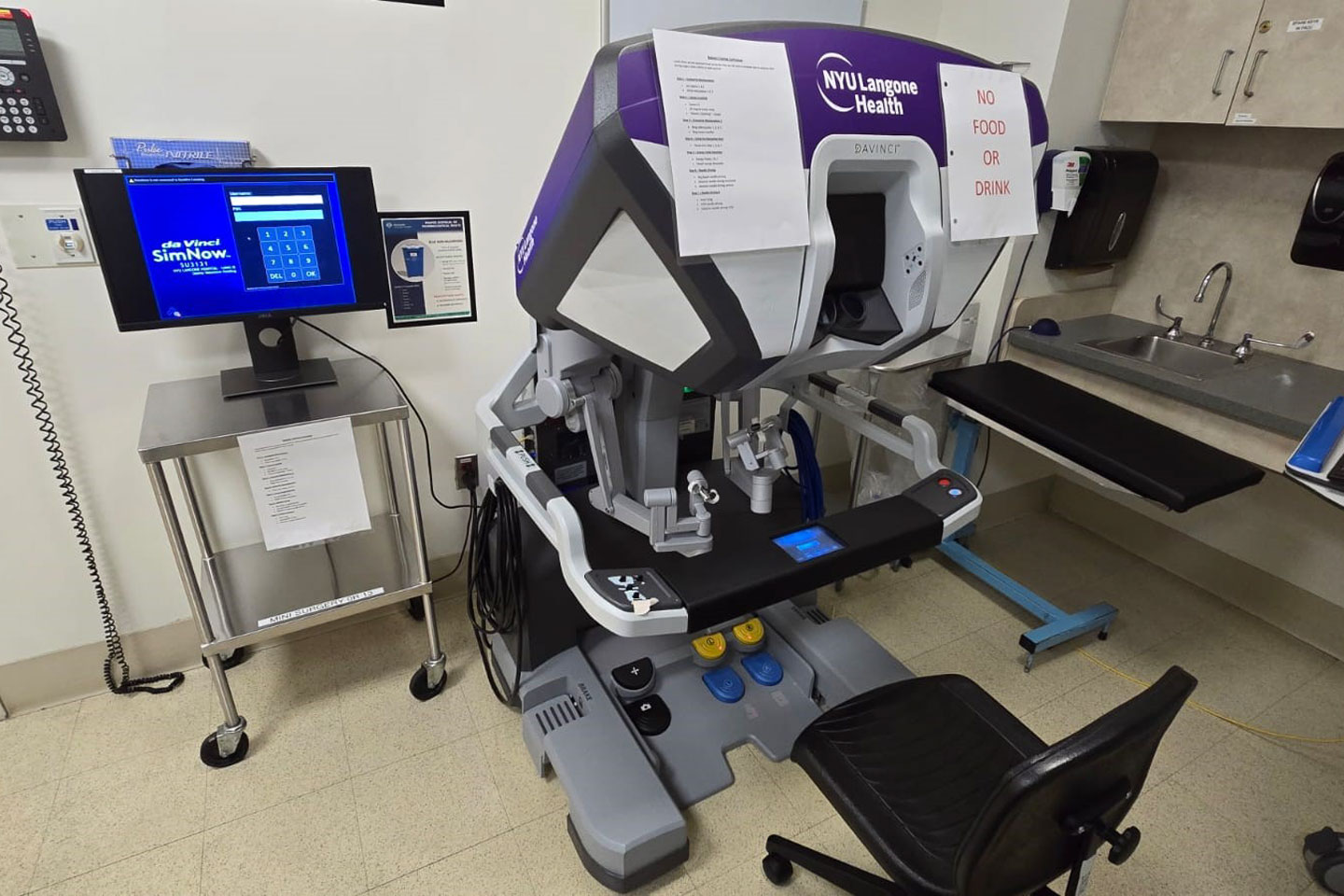
General Surgery Residency Curriculum
NYU Grossman Long Island School of Medicine’s General Surgery Residency curriculum facilitates each resident’s development into a highly competent, ethical, qualified general surgeon who excels in private practice or academic medicine in an urban, suburban, or rural setting. Our goal is for residents to become future leaders in surgery.
We have a diverse patient population that is reflected in the composition of our faculty and residents. We strive to create an atmosphere of mutual respect and camaraderie that typifies our training program and binds our faculty and residents together in the operating room, classroom, and outpatient offices. We do this by emphasizing our values of excellence, respect, safety, cooperation, trust, reliability, and honesty in providing excellent patient care, education, and research. We also encourage residents to find a balance between personal and professional life, and we value and foster a family-friendly environment that we’re proud to be a part of.
Program Details
Our residents receive an education in the broad field of general surgery with progressively increasing responsibility and autonomy. We provide didactic instruction in the basic and clinical sciences of surgical diseases and conditions and training in procedural skills and operative techniques.
General Surgery Residency program aims include the following:
- provide a superb environment to train categorical and preliminary residents to be the next generation of surgeons
- provide comprehensive knowledge of the pathophysiology and natural history of surgical diseases, as well as an outstanding understanding of general surgery, so that residents are prepared to pass the American Board of Surgery certifying exam
- instill the clinical judgment needed to be adept at managing patients, including critically ill patients, and be able to provide compassionate, effective, high-quality care to a diverse group of patients
- teach the technical skill, knowledge, judgment, and ability to perform emergency and elective surgical procedures safely, effectively, and independently
- emphasize the capacity to communicate effectively with patients, their family members, and healthcare personnel, using written and oral means, during patient care, presentations, and in research
- encourage an appreciation of the diversity of patients and colleagues, a respect for the cultural and religious needs of patients, and the ability to collaborate effectively with other healthcare professionals
- train residents to advance knowledge of and proficiency in patient care and practice by applying the literature and scientific evidence
- instill a commitment to lifelong learning and a willingness to understand and participate in teaching residents and students
Clinical Training
Residents progress through a structured educational environment from the need for total supervision to essentially independent function. Faculty members are available to residents even after graduation for continued guidance and mentorship.
Rotations for general surgery residents are structured in either four-week or monthly blocks. Residents gain experience and develop skills in state-of-the-art surgical approaches and technologies in the following surgical subspecialties: acute care and trauma; bariatric surgery; burn surgery; cardiothoracic surgery; colorectal and wound care surgery; endocrine, hepatobiliary, pancreatic, head and neck, and breast systems; general surgery; pediatric surgery; surgical intensive care; and transplant surgery.
Scholarly Activities
Our program offers a full range of conferences that take place at NYU Langone Hospital—Long Island. These scholarly activities include surgical grand rounds, morbidity and mortality conferences, robotic training, core competency days, animal lab simulations, weekly didactics, service-specific conferences, surgical oncology tumor boards, trauma surgery conferences, breast surgery conferences, tumor boards, and attending service rounds.
Surgical Grand Rounds
At least quarterly, NYU Langone Hospital—Long Island brings in local and international visiting professors to provide our residents, staff, and other attendees the unique opportunity to enhance their clinical and academic practice in order to promote up-to-date knowledge of surgical issues and awareness of current advances in the surgical field.
Morbidity and Mortality Conferences
The morbidity and mortality conference is held weekly. This is a multidisciplinary conference that fosters intercollegiate discussion between our trainees and faculty.
Robotic Training
Residents complete a training curriculum and certification to understand the basic components of the robotic operating system and become comfortable with basic manipulation of robotic instruments. Training includes an online certification course followed by a hands-on portion that teaches docking and undocking, instrument exchange, troubleshooting, and console operation. Residents have the unique opportunity to graduate with robotic certification, a much-needed skill in a surgical environment that increasingly relies on minimally-invasive techniques.
Animal Lab Simulations
Four times a year, surgical residents spend half a day practicing various open and laparoscopic surgical techniques in the live animal lab under the supervision of two or three attending surgeons. Residents become familiar with surgical instruments, perform basic and advanced procedures, and receive direct feedback on their performance.
Weekly Didactics
Every Thursday morning is protected resident education time. The curriculum for didactics follows a two-year revolving schedule based on the SCORE curriculum. Journal clubs and article reviews are also included during these sessions.
Service-Specific Conferences
Each service hosts their own weekly conference, such as the vascular conference, hepatobiliary conference, acute care trauma surgery, general surgery, bariatric surgery, and others.
Journal Club
Monthly journal club is held during resident protected time. Recent and old index publications are discussed with a faculty member to assess the power, integrity, and clinical significance of publications.
Simulation Lab
Residents can participate in bi-monthly additional simulation lab experience to improve their hands-on skills in different surgical procedures, including basic suturing, placing lines and tubes, performing vascular anastomosis, laparoscopic techniques, and bowel anastomosis.
General Surgery Residency Image Gallery
Research Opportunities
As part of the greater NYU community, NYU Langone Hospital—Long Island aims to graduate academic physicians who will be leaders in their chosen fields. As part of residency training, surgical residents are expected to conduct basic science, clinical research, or both in any surgical specialty they desire. The type of research, location, and funding is left to the discretion of the trainee. The Department of Surgery has initiated a mentorship plan and has faculty who actively partake in scholarly projects.
In addition to the breadth of clinical material for hands-on experience, clinical and basic science research is available for those who wish to pursue these areas. We now offer a research track with time allocated for dedicated study and research. However, participation in laboratory research is not a requirement for surgery residents.
